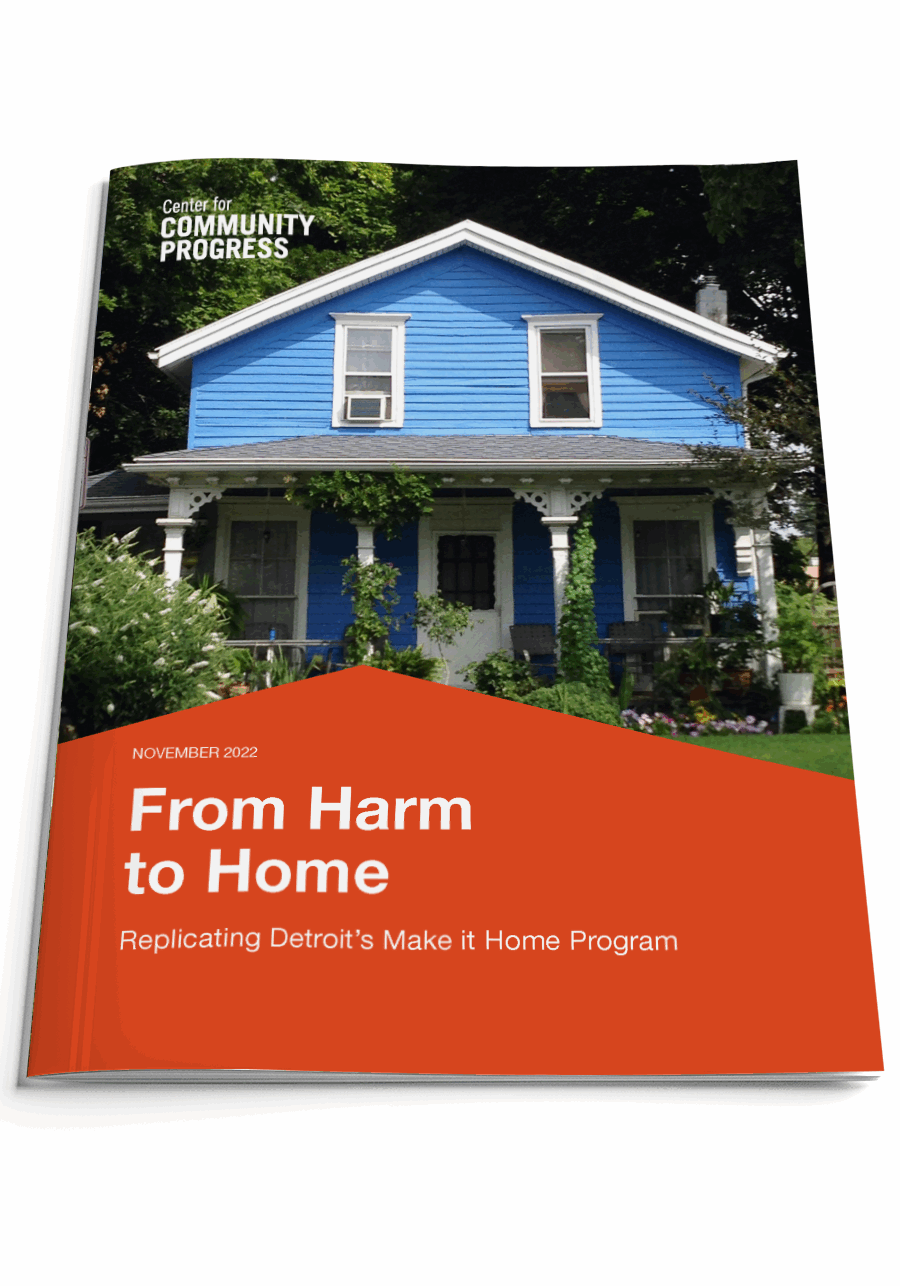From Harm to Home
Replicating Detroit's Make it Home Program
Topic(s): Local Analysis, Property Tax System, State & Local Analysis
Published: November 2022
When landlords fail to pay their property taxes and face foreclosure, the effects on tenants and neighborhoods can be devastating. Tenants worried about their housing stability may move out when learning of a potential foreclosure, rather than face the risk of eviction. Other times, tenants are evicted by the local government conducting the foreclosure, or by new owners after a sale. In both cases, the result is a dramatic household upheaval.
These moves impose significant financial, emotional, and physical costs on tenants and, in the case of a foreclosure, leave properties vacant to decline and depress surrounding property values. In many communities these properties are purchased at the tax sale by investors who “milk” the properties by collecting rent while failing to make repairs or pay property taxes—reducing homeownership opportunities and continuing the harmful cycle of property decline and tenant displacement.
In Detroit, Michigan, the City of Detroit, United Community Housing Coalition (UCHC), and Rocket Community Fund (RCF) created a program that disrupts this cycle and instead harnesses the power of the property tax foreclosure process to prevent displacement, stabilize neighborhoods, and improve housing conditions. The Make it Home Program uses the City’s legal power to acquire tenant-occupied, tax-delinquent, primarily single-family properties and then sells the properties to the tenants while providing funding and assistance for repairs and education and resources to help sustain their homeownership. Since its launch in 2017, the program has helped 1,396 tenants purchase their homes for an average cost of less than $10,000. A University of Michigan study of the first cohort of Make it Home participants found that after four years, 85 percent of the 80 participants still owned their homes.
In May 2022, with support from and in partnership with RCF, the Center for Community Progress launched the Make it Home National Replication Initiative, which aimed to explore whether Make it Home could work in other communities. Community Progress interviewed stakeholders and reviewed the programs materials and research to identify the key components needed for replication and important lessons learned from Make it Home to inform successful replication in other communities. We also convened a Make it Home Learning Cohort, which helped thirteen selected communities learn about Detroit’s program and explore whether they could create similar programs in their communities. Finally, we leveraged our national expertise to identify other cities likely to possess key replication components.
This report summarizes Community Progress’ findings from the National Replication Initiative and is intended to serve as a resource for the Make it Home Learning Cohort communities and other communities interested in creating a program like Make it Home. In this report, we provide an overview of how Make it Home currently operates, its history, and its outcomes; summarize the key components for replication; and identify cities that are likely to have these components and therefore potential for replication. Finally, we share lessons learned from those implementing this innovative program in Detroit to inform replication in other communities. If your community is interested in creating a program like Make it Home, we encourage you to contact Community Progress at [email protected] to learn more about the program and further learning opportunities.

Topic(s): Local Analysis, Property Tax System, State & Local Analysis
Published: November 2022
Related Publications
Other Related Content
Subscribe to join 14,000 community development leaders getting the latest resources from top experts on vacant property revitalization.
